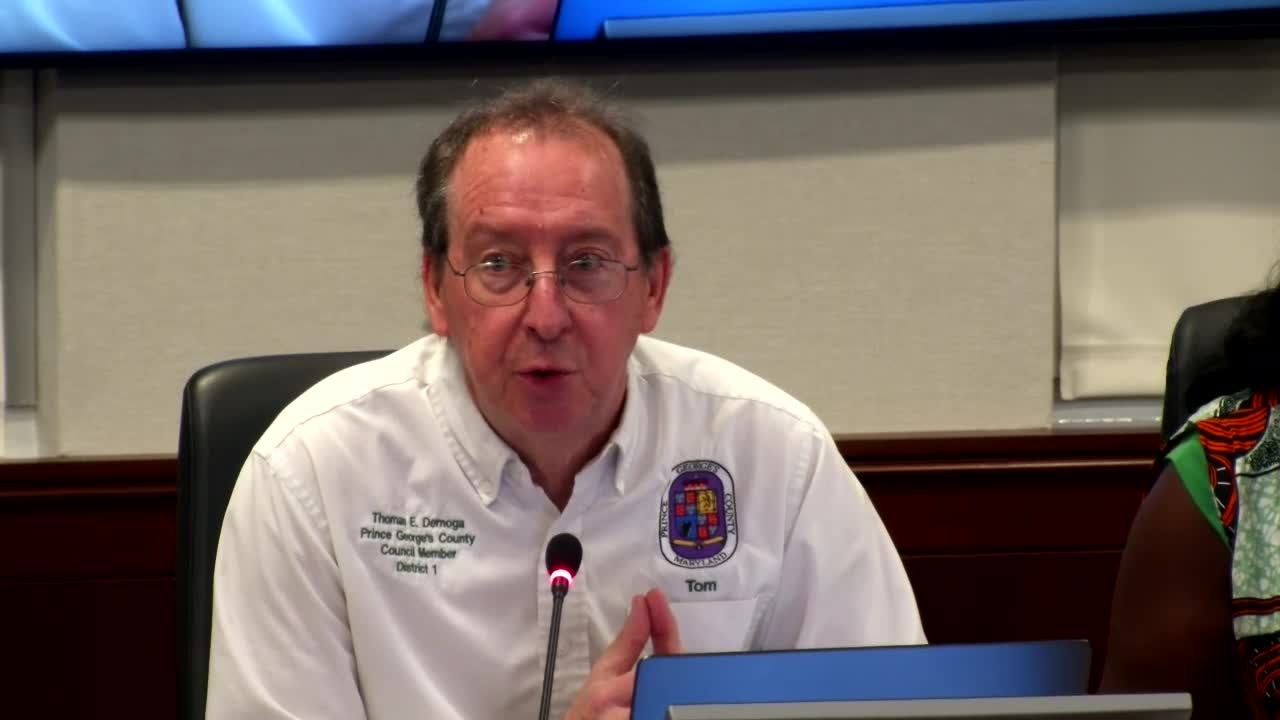Council Considers CB 43 to Encourage Residential Conversions in Montgomery County
October 02, 2025 | Prince George's County, Maryland
This article was created by AI summarizing key points discussed. AI makes mistakes, so for full details and context, please refer to the video of the full meeting. Please report any errors so we can fix them. Report an error »

The Planning, Housing and Economic Development Committee convened on October 2, 2025, to discuss the implications of CB-069-2025 Draft 2A, a legislative proposal aimed at modifying residential development regulations in Prince George's County, Maryland. The meeting focused on the recent court ruling that favored citizens against the council's previous actions regarding residential development limitations in the Commercial General Office (CGO) zone.
The committee began with a review of the bill's intent, which has shifted from restricting residential development to facilitating it. The primary goal of the revised draft is to provide relief for developers looking to convert existing office buildings into residential units. This change comes in response to requests for amendments that would allow for the continuation of applications already in process.
Mark Jackson, the director of government affairs for the county executive, addressed the committee, noting that while there is no specific recommendation for the bill at this time, discussions with industry stakeholders have highlighted the need for further refinement. He suggested that aspects of the bill might need to be separated to focus on initiatives and guidelines, referencing a similar bill passed in Montgomery County earlier in the year.
The committee members expressed concerns about the potential consequences of not passing the bill, particularly regarding its impact on developers. They acknowledged the urgency of the matter, as all zoning bills must be introduced by October 14, making this meeting the last opportunity for discussion before the deadline.
A significant point of contention arose regarding the balance between residential and commercial development. Some committee members emphasized the importance of maintaining mixed-use developments to avoid creating communities that lack essential services and amenities. They argued that the current trend of prioritizing residential units could lead to a lack of retail options, undermining the goal of creating walkable communities.
The meeting concluded with a consensus on the need for further discussions to refine the bill and address the concerns raised. The committee plans to reconvene to ensure that the legislation aligns with the county's broader development goals while supporting the needs of both developers and residents.
The committee began with a review of the bill's intent, which has shifted from restricting residential development to facilitating it. The primary goal of the revised draft is to provide relief for developers looking to convert existing office buildings into residential units. This change comes in response to requests for amendments that would allow for the continuation of applications already in process.
Mark Jackson, the director of government affairs for the county executive, addressed the committee, noting that while there is no specific recommendation for the bill at this time, discussions with industry stakeholders have highlighted the need for further refinement. He suggested that aspects of the bill might need to be separated to focus on initiatives and guidelines, referencing a similar bill passed in Montgomery County earlier in the year.
The committee members expressed concerns about the potential consequences of not passing the bill, particularly regarding its impact on developers. They acknowledged the urgency of the matter, as all zoning bills must be introduced by October 14, making this meeting the last opportunity for discussion before the deadline.
A significant point of contention arose regarding the balance between residential and commercial development. Some committee members emphasized the importance of maintaining mixed-use developments to avoid creating communities that lack essential services and amenities. They argued that the current trend of prioritizing residential units could lead to a lack of retail options, undermining the goal of creating walkable communities.
The meeting concluded with a consensus on the need for further discussions to refine the bill and address the concerns raised. The committee plans to reconvene to ensure that the legislation aligns with the county's broader development goals while supporting the needs of both developers and residents.
View full meeting
This article is based on a recent meeting—watch the full video and explore the complete transcript for deeper insights into the discussion.
View full meeting
